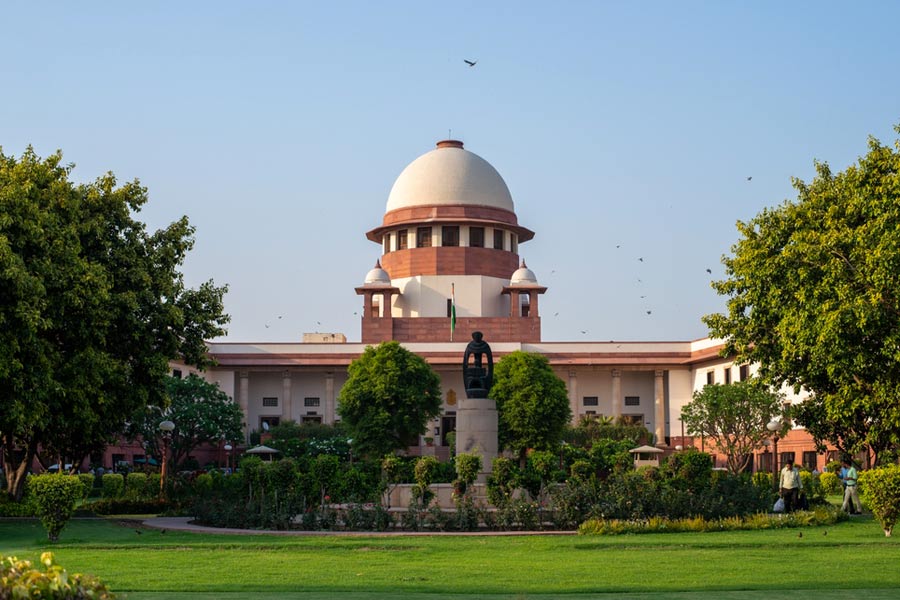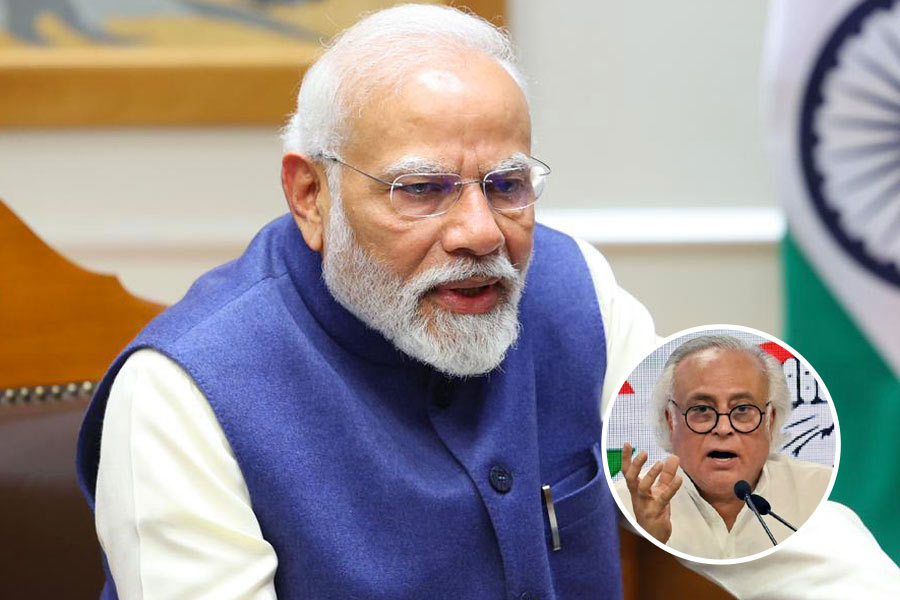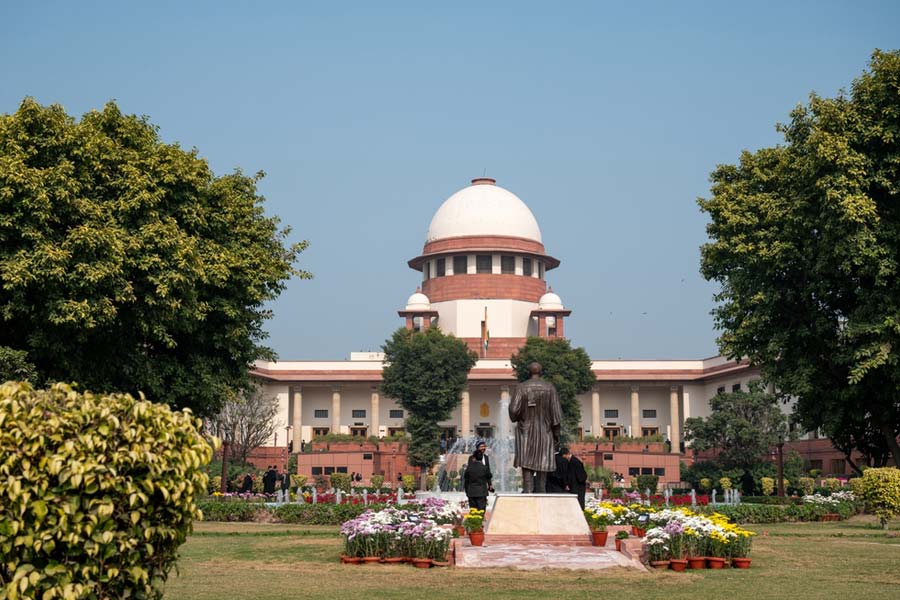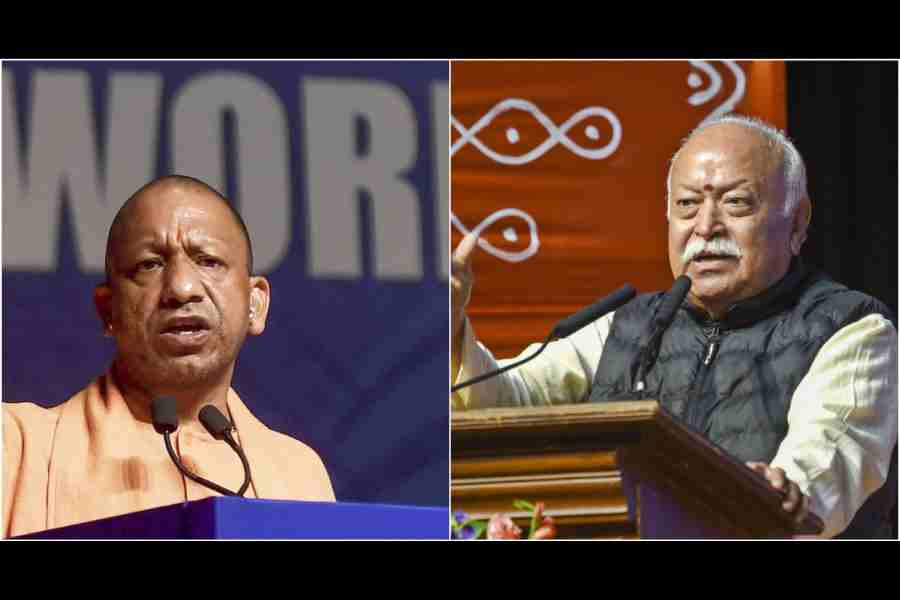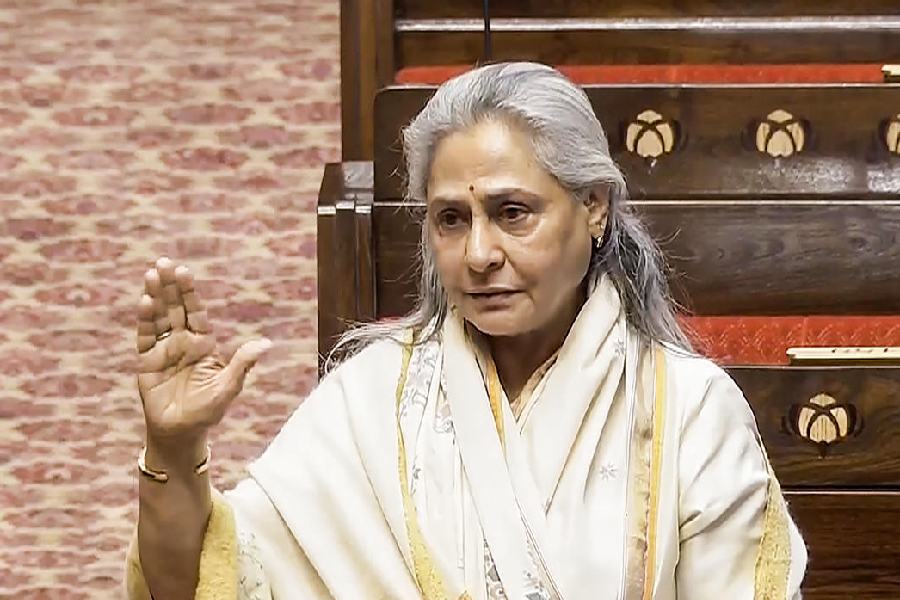The Supreme Court on Thursday said it would try to evolve a transparent mechanism to avert “vindictive” or “tit-for-tat” actions between state police and central investigative agencies like the Enforcement Directorate and the CBI.
Two instances were mentioned at the hearing: the recent arrest of ED officer Ankit Tiwari on bribery charges by Tamil Nadu police, and Bengal chief minister Mamata Banerjee laying siege to the CBI office in Calcutta in 2021 after the arrest of Trinamul ministers in the Narada scam.
Recently, Bengal police registered a trespass case against ED officials who had raided the home of a local Trinamul leader in connection with a corruption probe, while the central agency accused the state police of going soft on the absconding accused.
The bench of Justice Surya Kant and Justice K.V. Viswanathan was hearing an ED application for transfer to the CBI of the criminal case registered against Tiwari in Tamil Nadu.
“There may be genuine cases where ED may have to go in. Then there may be cases where they are brought in with a mala fide…” Justice Viswanathan observed.
“There has to be a mechanism, particularly when the ruling party is different between the Centre and the state. Something has to be evolved so that while the accused in genuine cases don’t go scot-free merely because it is being handled by the central agency and there is also no mala fide or witch-hunt.”
He added: “This is just the start. If this happens in different states where ED officers are posted, what will happen to this country?... Suppose there is a given scenario where there is a tit-for-tat reaction. That is why some kind of screening mechanism should be there before a probe.”
Justice Kant said the objective was to ensure fair and objective investigation. “A mechanism can be devised so that no guilty should go scot-free under the veils of counter-allegations. It can then be applied (to) other states… one by one,” he said.
Tiwari was arrested by Tamil Nadu’s directorate of vigilance and anti-corruption (DVAC) in December for allegedly demanding a Rs 20-lakh bribe from a state official implicated in an ED case.
The bench cautioned solicitor-general Tushar Mehta, who was representing the ED, and senior advocate Kapil Sibal, representing the Tamil Nadu government along with the state’s additional advocate-general Amit Anand Tiwari, after they engaged in mutual recrimination.
“We are on the larger issues of best practices considering the federal structure of the country. We will evolve a mechanism — you should sit together and give suggestion,” the bench said.
It directed that the parallel probes being conducted by the ED and the DVAC against Tiwari be kept on hold.
Mehta alleged that following Tiwari’s arrest, the DVAC had raided ED’s regional office in Chennai and seized several documents relating to a money-laundering probe against several state ministers. He also cited how Mamata had led a siege of the Calcutta CBI office nearly three years ago.
Sibal questioned the impartiality of the CBI and the ED, wondering why they did not investigate BJP politicians. “You should not protect your ministers. Investigate all FIRs against the chief minister of Assam,” he told Mehta.
As the two senior counsel traded charges, Justice Kant referred to an order passed by Madras High Court refusing a CBI probe into the Tiwari case while hearing a public-interest plea.
“The way the high court entertained it and passed the order, we don’t want to comment…. But there is something which can be said about both sides (Centre and the state). Either you both come up with some solutions, otherwise we will find out. The matter needs to be probed in a transparent manner,” he said.

